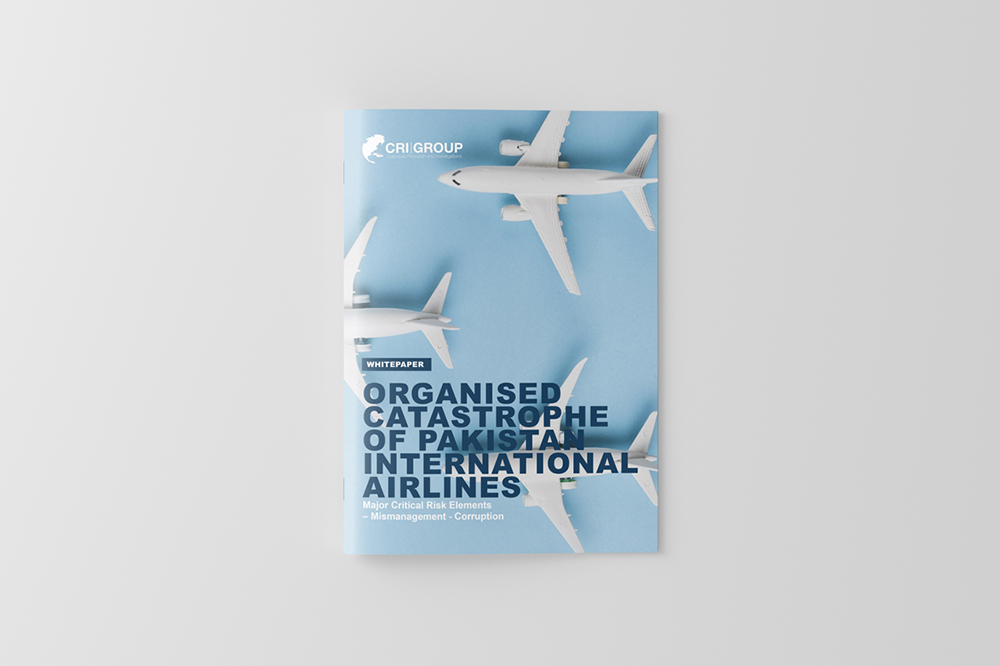Pakistan International Airlines (PIA) fraud and corruption scandal
Pakistan International Airlines (PIA) fraud and corruption scandal is not a coincidence but an organised failure of institutional management, state, and internal controls. PIA is a national flag carrier found in very miserable circumstances nowadays, from fake degrees and professional licenses of the pilots to horrifying crashes with loss of precious lives.
The incidence of fraud and corruption in State-owned enterprises, particularly in Pakistan, has been rising at an alarming rate in fairly recent times (Simpson, 2002, p. 21). While the perpetuation of financial crime and fraud in Pakistan is a globally renowned fact, and while privatised institutions play a particularly substantial role in such statistics (Loughman and Sibery, 2011, p. 254), fraud in the governmental institutions is also a key element in the fabric of financial crime in Pakistan (Daudpota, 2013). In that regard, Pakistan International Airlines (PIA hereafter) plays a significant role in being a State-owned enterprise.
Being the national flag carrier of Pakistan, PIA has a predominantly State-based shareholding structure (International Monetary Fund and the Middle East and Central Asia Dept, 2014). Indeed, the State owns approximately 87% of the shares in the Airlines, with the remainder 13% being held by private investors (United Nations ESCAP, 2009, p. 183). Yet, despite the active involvement of the government, or rather owing to the active engagement of the administration, PIA has been fraught with corruption and financial fraud for some time now (John, 2009, p. 61). Even recently, three PIA officials have been fired due to corruption and human trafficking charges, reflecting the inherent culture of corporate management within PIA (Pakistan Today, 2015).
When one considers such colossal failures to manage financial crime within such public bodies, several critical risk factors such as collusion with tenderers and financial bungling play a prominent role. Of these, this paper seeks to essentially focus on the two main critical risk factors of kickbacks and mismanagement to analyse how these risk factors have played a role in the perpetuation of financial fraud in PIA. Further to this study, the paper shall propose a potential solution in controlling the advent and extent of financial crime in the PIA, as per the established standards of crime control (Croall, 2003). Read the answers to the following questions:
- Critical Risk factors of mismanagement;
- Critical risk factors and the kickbacks;
- Risk identification and framework analysis;
- … and more!
Download the case study now to learn the major critical risk elements.
Pakistan International Airlines (PIA) fraud and corruption scandal.

Organised Catastrophe of Pakistan International Airlines: Major Critical Risk Elements – Mismanagement – Corruption
Who is CRI Group™?
Based in London, CRI Group™ works with companies across the Americas, Europe, Africa, Middle East and Asia-Pacific as a one-stop international Risk Management, Employee Background Screening, Business Intelligence, TPRM, Due Diligence, Compliance Solutions and other professional Investigative Research solutions provider. We have the largest proprietary network of background-screening analysts and investigators across the Middle East and Asia. Our global presence ensures that no matter how international your operations are we have the network needed to provide you with all you need, wherever you happen to be. CRI Group™ also holds BS 102000:2013 and BS 7858:2012 Certifications, is an HRO certified provider and partner with Oracle.
In 2016, CRI Group™ launched Anti-Bribery Anti-Corruption (ABAC™) Center of Excellence – an independent certification body that provides education and certification services for individuals and organisations on a wide range of disciplines and ISO standards, including ISO 31000:2018 Risk Management- Guidelines; ISO 37000:2021 Governance of Organisations; ISO 37002:2021 Whistleblowing Management System; ISO 37301:2021 (formerly ISO 19600) Compliance Management system (CMS); Anti-Money Laundering (AML); and ISO 37001:2016 Anti-Bribery Management Systems ABMS. ABAC™ offers a complete suite of solutions designed to help organisations mitigate the internal and external risks associated with operating in multi-jurisdiction and multi-cultural environments while assisting in developing frameworks for strategic compliance programs. Contact ABAC® for more on ISO Certification and training.



